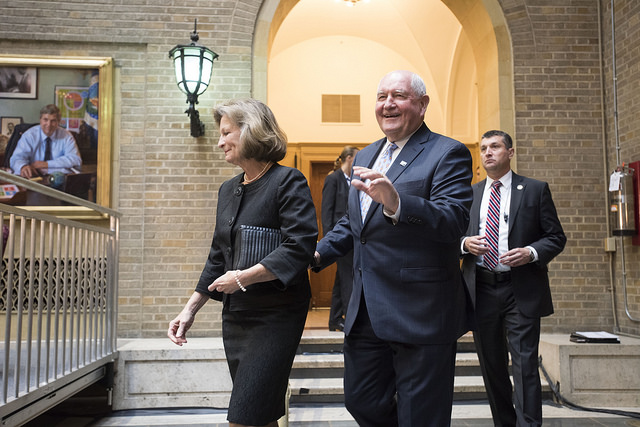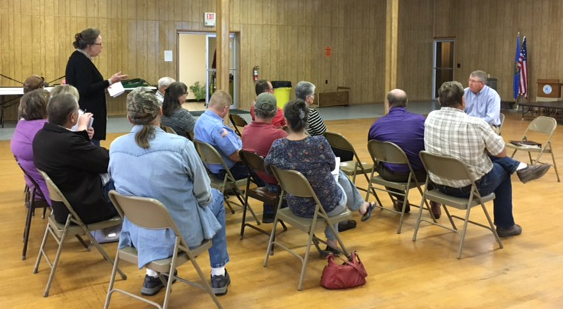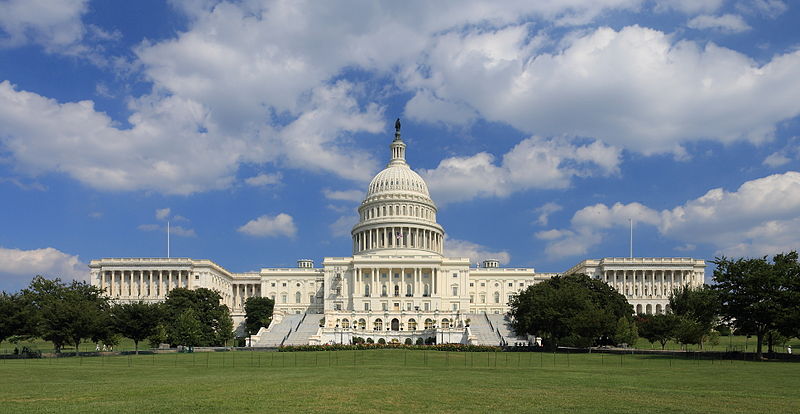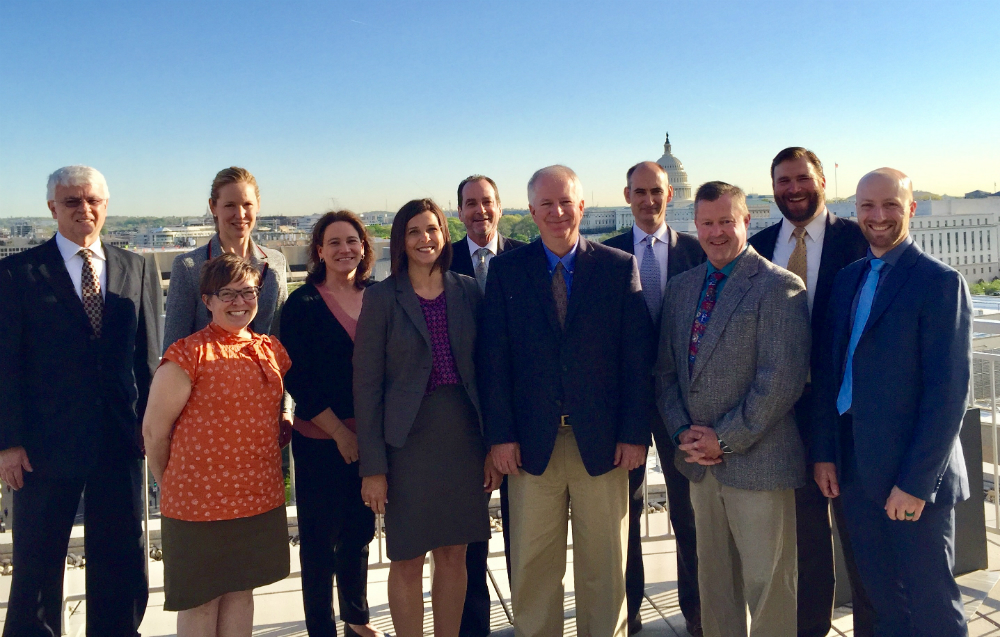The vote is in! NACD congratulates Sonny Perdue on new post

Last night, the Senate voted to confirm former Georgia Governor Sonny Perdue as the head of the U.S. Department of Agriculture. In a press release issued shortly after the long-awaited vote, NACD President Brent Van Dyke said:
“(Sonny Perdue) has a proven track record for effective governing and a reputation as a dedicated public servant. NACD appreciated his endorsement of voluntary conservation in his nomination hearing, and we look forward to working with him, now and throughout his tenure, to advance the adoption of voluntary conservation on working lands across this country.”
NACD and a long list of other agriculture, wildlife, and conservation groups, sent a letter of support for Perdue’s nomination earlier this year. Visit NACD’s Newsroom to learn more.
Have you contacted your lawmakers yet on the critical importance of voluntary conservation programs?
Members of the Oklahoma Association of Conservation Districts board have!

Bryant Reeves of Mangum, Jimmy Emmons of Elk City, Debi Carnott of Watonga, and Steve House of Watonga have all attended town halls in western Oklahoma this month where they asked Rep. Frank Lucas, the chair of the U.S. House of Representatives subcommittee on conservation, about the future of the small watershed flood control program and the farm bill conservation title.
These conservation leaders also made a point to introduce themselves to the congressman’s staff at each town hall and to tell them about their conservation districts. Personally reaching out to your representatives is one of the best ways to make your voice heard on Capitol Hill.
Sarah Blaney, OACD director, said her association is using the materials and contact information NACD provided on its Grassroots Advocacy webpage to communicate the value of locally-led, voluntary, and incentive-based conservation to their members of Congress. If you or your district’s representatives are interested in getting involved in NACD’s grassroots advocacy effort, visit the webpage! There you’ll find information on conservation policy and environmental regulations, sample questions to ask your representatives, letter templates, and a form to subscribe to grassroots alerts.
Washington update from NACD

Now that Congress has returned from Easter recess, this week is shaping up to be a big one for conservation districts. Yesterday evening, the Senate voted to confirm former Georgia Governor Sonny Perdue as the head of USDA. Now that Perdue is official (he was sworn in earlier today), NACD is hopeful additional roles will be filled within USDA.
Today, the Trump Administration held a roundtable discussion with farmers and signed an executive order to create an “interagency task force to examine the concerns of rural America and suggest legislative and regulatory changes to address them.” NACD will be closely following any progress that this task force makes.
By week’s end, Congress is expected to pass an appropriations bill that will fund the federal government through the end of Fiscal Year 2017, averting a government shutdown. NACD is urging Congress to reverse proposed cuts to mandatory farm bill programs, such as EQIP and CSP, and to continue robust discretionary funding for other programs, including NRCS’ Conservation Technical Assistance Program and EPA’s 319 grants.
To tell your members of Congress how important federal voluntary conservation programs are to you and your district, check out our Grassroots Advocacy webpage.

As part of a six-month series on district operations, the Did You Know? monthly feature in eResource will highlight chapters of the NACD District Outlook Task Force report: “Blueprint for Locally-Led Conservation – A Strategy for District Success and Sustainability” (available here on our website). This month’s chapter tackles structure and governance.
A healthy conservation district structure requires a balanced approach to funding, governance, and authorities outlined in their state’s statutes. District leadership should never be delegated. Each conservation district must assume the lead role in resource assessments and conservation delivery within the district, while regularly engaging additional partners in the locally-led process to identify, discuss, and assess resource needs of the district.
To read the rest of this chapter summary – which includes a list of recommendations for districts – head to NACD’s blog.
Coordinating Coalition for Soil Health meets in Washington

Because conservation districts play a key role in building and advocating for soil health across the U.S., NACD has been participating as a member of the Coordinating Coalition for Soil Health (CCSH) alongside other non-profit organizations sharing the same concern for and focus on soil health. Last week, the coalition met with five USDA agencies to introduce the group and its coordinated efforts to make soil health a mainstay in land and resource management.
NACD was represented by CEO Jeremy Peters and North Central Region Representative Beth Mason, who shared what NACD brings to the coalition by way of on-the-ground outreach efforts and the Soil Health Champions Network.
The CCSH is made up by the following partner organizations: Conservation Technology Information Center, Field to Market, Global Soil Security, National Association of Conservation Districts, North Central Sustainable Agriculture Research and Education, Soil Health Institute, Soil Health Partnership, Soil and Water Conservation Society, The Fertilizer Institute, The Nature Conservancy, The American Society of Agronomy, Crop Science Society of America, and Soil Science Society of America.
|
|
|
|
|
Email Marketing By
|


|
|
|
|
|